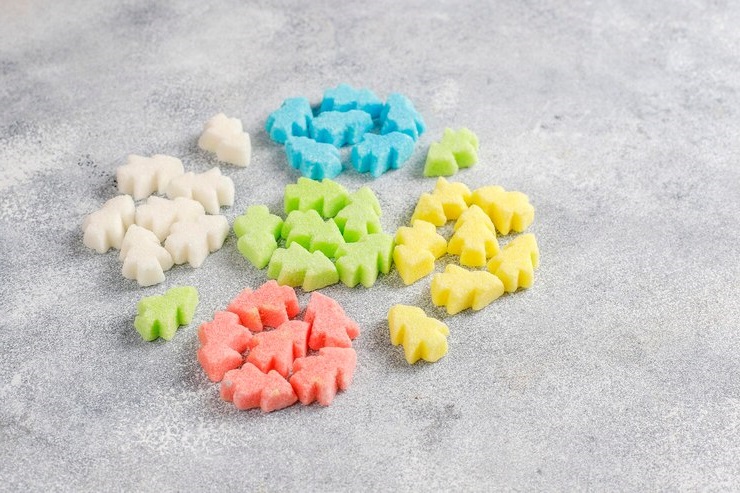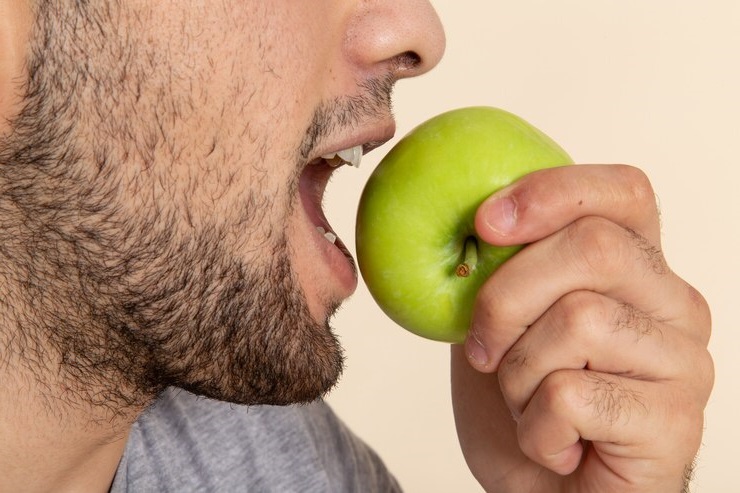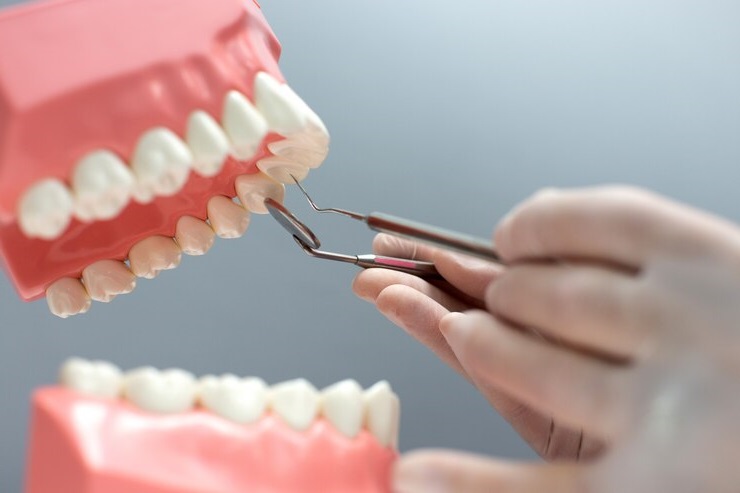
Bananas are a popular fruit enjoyed by many people around the world. They are known for being rich in vitamins, minerals, and fiber, making them a nutritious addition to any diet. However, a common question that arises is whether bananas are a good source of probiotics. Let’s delve into this topic to uncover the truth about bananas and their potential role in promoting gut health through probiotics.
Understanding Probiotics and Their Importance
Probiotics are live microorganisms that provide health benefits when consumed in adequate amounts. They are often referred to as “good” bacteria because they help maintain a healthy balance of bacteria in the gut. This balance is crucial for digestion, nutrient absorption, and overall immune function. Knowing whether bananas are a good source of probiotics can help you make informed dietary choices to support your gut health.
Probiotics can be found in various foods and supplements, and they play a significant role in preventing and treating gastrointestinal issues such as diarrhea, irritable bowel syndrome (IBS), and inflammatory bowel disease (IBD). By promoting a healthy gut microbiome, probiotics can also enhance immune function and potentially improve mental health through the gut-brain axis.
Do Bananas Contain Probiotics?
The short answer is no, bananas are not a direct source of probiotics. Probiotics are typically found in fermented foods like yogurt, kefir, sauerkraut, kimchi, and certain types of cheese. These foods contain live bacteria that can colonize the gut and provide various health benefits. However, while bananas are not a good source of probiotics, they do play a role in supporting gut health in another important way.
Bananas can still be a part of a gut-healthy diet because they contain other components that support the growth and function of beneficial bacteria. This makes them an excellent complementary food to pair with probiotic-rich foods to maximize gut health benefits.
Bananas as a Prebiotic Food
Bananas are not just delicious but also beneficial for gut health due to their prebiotic properties. Prebiotics are non-digestible fibers that serve as food for probiotics, helping to nourish and support the growth of beneficial bacteria in the gut. This is where bananas come into play.
What Are Prebiotics?
Prebiotics are non-digestible fibers that serve as food for probiotics. They help nourish and support the growth of beneficial bacteria in the gut. This is where bananas come into play. Although bananas are not a good source of probiotics, they are an excellent source of prebiotics, particularly a type of fiber called resistant starch.
How Bananas Support Probiotic Growth
Bananas contain resistant starch, which resists digestion in the small intestine and reaches the colon intact. In the colon, resistant starch is fermented by gut bacteria, producing short-chain fatty acids that provide energy for colon cells and support a healthy gut environment. This process helps nourish probiotics and promotes a balanced gut microbiome, even though bananas are not a direct source of probiotics.
Nutritional Benefits of Bananas
While bananas are not a good source of probiotics, they offer a wide range of nutritional benefits that contribute to overall health. Bananas are rich in vitamins and minerals, including vitamin C, vitamin B6, potassium, and magnesium. These nutrients play essential roles in maintaining healthy bodily functions, such as supporting the immune system, regulating blood pressure, and promoting muscle and nerve function.
Bananas also provide dietary fiber, which is crucial for digestive health. The fiber content in bananas helps regulate bowel movements, prevent constipation, and maintain a healthy weight. By including bananas in your diet, you can enjoy these nutritional benefits while supporting your gut health indirectly.
Vitamins and Minerals
- Vitamin C: An antioxidant that helps protect the body from free radicals and supports immune function.
- Vitamin B6: Involved in protein metabolism and cognitive development.
- Potassium: Helps regulate fluid balance, muscle contractions, and nerve signals.
- Magnesium: Supports muscle and nerve function, blood sugar control, and bone health.
Dietary Fiber
Bananas are also a great source of dietary fiber, which is essential for digestive health. Fiber helps regulate bowel movements, prevent constipation, and maintain a healthy weight. The combination of soluble and insoluble fiber in bananas supports overall gut health by promoting regularity and feeding beneficial gut bacteria.
How to Incorporate Bananas into Your Diet
Even though bananas are not a good source of probiotics, they can still be a valuable addition to your diet. There are many simple and delicious ways to enjoy bananas daily, allowing you to benefit from their prebiotic properties and nutritional content.
Simple Ways to Enjoy Bananas
Here are some simple ways to incorporate bananas into your daily meals:
- Smoothies: Blend bananas with yogurt, spinach, and other fruits for a nutritious smoothie.
- Oatmeal: Add sliced bananas to your morning oatmeal for natural sweetness and extra fiber.
- Snacks: Enjoy a banana on its own or with a dollop of peanut butter for a satisfying snack.
- Baking: Use mashed bananas as a natural sweetener in baking recipes like banana bread or muffins.
Combining Bananas with Probiotic Foods
To maximize the benefits of bananas and probiotics, consider pairing them with foods that are rich in probiotics. Here are some ideas:
- Yogurt and Bananas: Top your yogurt with sliced bananas to combine prebiotics and probiotics in one delicious meal.
- Kefir Smoothie: Blend bananas with kefir, a fermented milk drink that contains live probiotics.
- Banana and Sauerkraut Salad: Add sliced bananas to a salad with sauerkraut for a unique combination of flavors and gut-friendly benefits.
The Role of Prebiotics and Probiotics in Gut Health
The gut microbiome is the community of microorganisms living in the digestive tract. A healthy gut microbiome is essential for digestion, nutrient absorption, immune function, and even mental health. Both prebiotics and probiotics play crucial roles in maintaining this balance.
The Gut Microbiome
The gut microbiome is the community of microorganisms living in the digestive tract. A healthy gut microbiome is essential for digestion, nutrient absorption, immune function, and even mental health. Both prebiotics and probiotics play crucial roles in maintaining this balance.
How Prebiotics and Probiotics Work Together
Prebiotics provide the food necessary for probiotics to thrive. When you consume prebiotic-rich foods like bananas, you are essentially feeding the beneficial bacteria in your gut. This symbiotic relationship helps maintain a healthy balance of gut bacteria, which can improve digestion, boost the immune system, and support overall health.
Benefits of a Balanced Gut Microbiome
A balanced gut microbiome aids in the breakdown and absorption of nutrients from food. This can help prevent digestive issues like bloating, gas, and constipation. By supporting the growth of beneficial bacteria through prebiotics like those found in bananas, you can promote better digestion and overall gut health.
Improved Digestion
A balanced gut microbiome aids in the breakdown and absorption of nutrients from food. This can help prevent digestive issues like bloating, gas, and constipation. By supporting the growth of beneficial bacteria through prebiotics like those found in bananas, you can promote better digestion and overall gut health.
Enhanced Immune Function
The gut plays a significant role in the immune system, with a large portion of immune cells residing in the gut. A healthy gut microbiome can help protect against infections and diseases by supporting the immune system’s response. Consuming prebiotics and probiotics together can strengthen your body’s natural defenses.
Mental Health Benefits
Emerging research suggests that the gut-brain axis links gut health to mental health. A balanced gut microbiome can influence mood, stress levels, and cognitive function. By promoting a healthy gut environment with prebiotics like bananas and probiotics, you may experience improved mental well-being.
Common Misconceptions About Bananas and Probiotics
One common misconception is that bananas are a good source of probiotics. As we’ve discussed, this is not true. While bananas are not a direct source of probiotics, they are a valuable source of prebiotics, which support the growth and activity of beneficial gut bacteria.
Myth: Bananas Are a Probiotic Food
One common misconception is that bananas are a good source of probiotics. As we’ve discussed, this is not true. While bananas are not a direct source of probiotics, they are a valuable source of prebiotics, which support the growth and activity of beneficial gut bacteria.
Myth: Only Fermented Foods Contain Prebiotics
Another misconception is that prebiotics are only found in fermented foods. In reality, prebiotics are found in a variety of foods, including fruits, vegetables, whole grains, and legumes. Bananas are a prime example of a non-fermented food that provides prebiotic benefits.
Exploring Other Sources of Prebiotics
In addition to bananas, many other fruits and vegetables are rich in prebiotics. Examples include apples, onions, garlic, leeks, and asparagus. Incorporating a variety of these foods into your diet can help support a healthy gut microbiome.
Fruits and Vegetables
In addition to bananas, many other fruits and vegetables are rich in prebiotics. Examples include apples, onions, garlic, leeks, and asparagus. Incorporating a variety of these foods into your diet can help support a healthy gut microbiome.
Whole Grains
Whole grains like oats, barley, and quinoa are also excellent sources of prebiotics. They provide the fiber necessary to nourish beneficial gut bacteria and promote overall digestive health.
Legumes and Nuts
Legumes such as lentils, chickpeas, and beans, as well as nuts like almonds and pistachios, are rich in prebiotic fibers. Including these foods in your meals can enhance the diversity and activity of your gut microbiome.
The Best Ways to Get Probiotics
Fermented foods are among the best sources of probiotics. They contain live bacteria that can colonize the gut and provide various health benefits. Common fermented foods include yogurt, kefir, sauerkraut, kimchi, and miso.
Fermented Foods
Fermented foods are among the best sources of probiotics. They contain live bacteria that can colonize the gut and provide various health benefits. Common fermented foods include:
- Yogurt: A popular probiotic food made from fermented milk.
- Kefir: A fermented milk drink similar to yogurt but with a thinner consistency.
- Sauerkraut: Fermented cabbage that provides a tangy flavor and beneficial bacteria.
- Kimchi: A Korean dish made from fermented vegetables, often including cabbage and radishes.
- Miso: A Japanese seasoning made from fermented soybeans, often used in soups.
Probiotic Supplements
For those who may not enjoy fermented foods, probiotic supplements are a convenient alternative. These supplements come in various forms, including capsules, tablets, and powders. When choosing a probiotic supplement, look for products that contain multiple strains of beneficial bacteria and have a high colony-forming unit (CFU) count.
Tips for Maintaining a Healthy Gut
A balanced diet that includes a variety of prebiotic and probiotic foods is essential for maintaining a healthy gut. Focus on whole, nutrient-dense foods and limit processed foods and added sugars.
Balanced Diet
A balanced diet that includes a variety of prebiotic and probiotic foods is essential for maintaining a healthy gut. Focus on whole, nutrient-dense foods and limit processed foods and added sugars.
Regular Physical Activity
Exercise can positively impact gut health by promoting regular bowel movements and reducing inflammation. Aim for at least 30 minutes of moderate exercise most days of the week.
Stress Management
Chronic stress can negatively affect gut health by altering the gut microbiome and increasing inflammation. Practice stress-reducing activities such as meditation, yoga, deep breathing exercises, and spending time in nature.
Adequate Hydration
Staying hydrated is crucial for overall health, including gut health. Water helps maintain the mucosal lining of the intestines and supports the movement of food and waste through the digestive tract. Aim to drink at least eight glasses of water a day.
Conclusion
While bananas are not a good source of probiotics, they are an excellent source of prebiotics that support the growth and activity of beneficial gut bacteria. By combining bananas with probiotic-rich foods, you can create a synergistic effect that promotes a healthy gut microbiome. Understanding the role of prebiotics and probiotics in gut health can help you make informed dietary choices and maintain overall well-being. So, enjoy your bananas as part of a balanced diet and remember the importance of incorporating both prebiotics and probiotics into your daily routine for optimal health.





